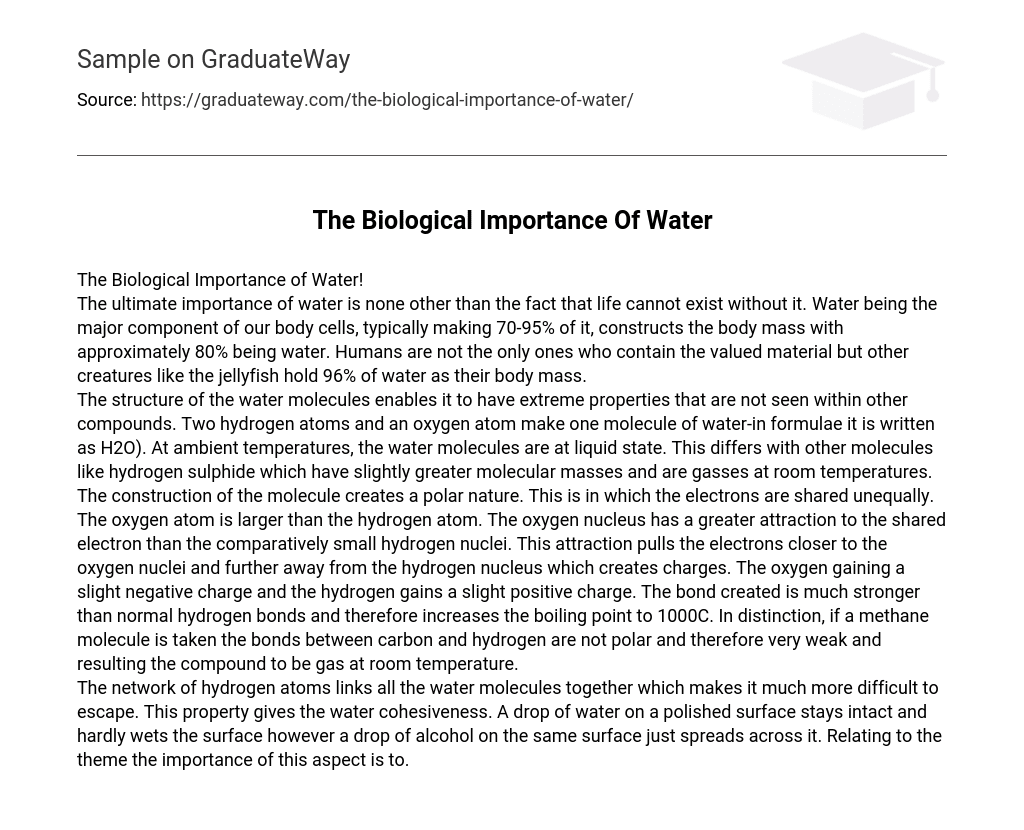The Biological Importance of Water!
The ultimate importance of water is none other than the fact that life cannot exist without it. Water being the major component of our body cells, typically making 70-95% of it, constructs the body mass with approximately 80% being water. Humans are not the only ones who contain the valued material but other creatures like the jellyfish hold 96% of water as their body mass.
The structure of the water molecules enables it to have extreme properties that are not seen within other compounds. Two hydrogen atoms and an oxygen atom make one molecule of water-in formulae it is written as H2O). At ambient temperatures, the water molecules are at liquid state. This differs with other molecules like hydrogen sulphide which have slightly greater molecular masses and are gasses at room temperatures. The construction of the molecule creates a polar nature.
This is in which the electrons are shared unequally. The oxygen atom is larger than the hydrogen atom. The oxygen nucleus has a greater attraction to the shared electron than the comparatively small hydrogen nuclei. This attraction pulls the electrons closer to the oxygen nuclei and further away from the hydrogen nucleus which creates charges. The oxygen gaining a slight negative charge and the hydrogen gains a slight positive charge.
The bond created is much stronger than normal hydrogen bonds and therefore increases the boiling point to 1000C. In distinction, if a methane molecule is taken the bonds between carbon and hydrogen are not polar and therefore very weak and resulting the compound to be gas at room temperature.
The network of hydrogen atoms links all the water molecules together which makes it much more difficult to escape. This property gives the water cohesiveness. A drop of water on a polished surface stays intact and hardly wets the surface however a drop of alcohol on the same surface just spreads across it.
Relating to the theme the importance of this aspect is to.





